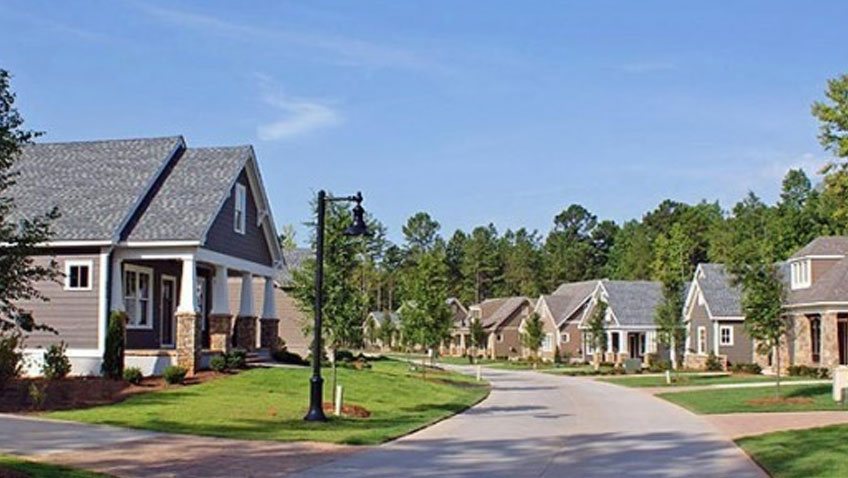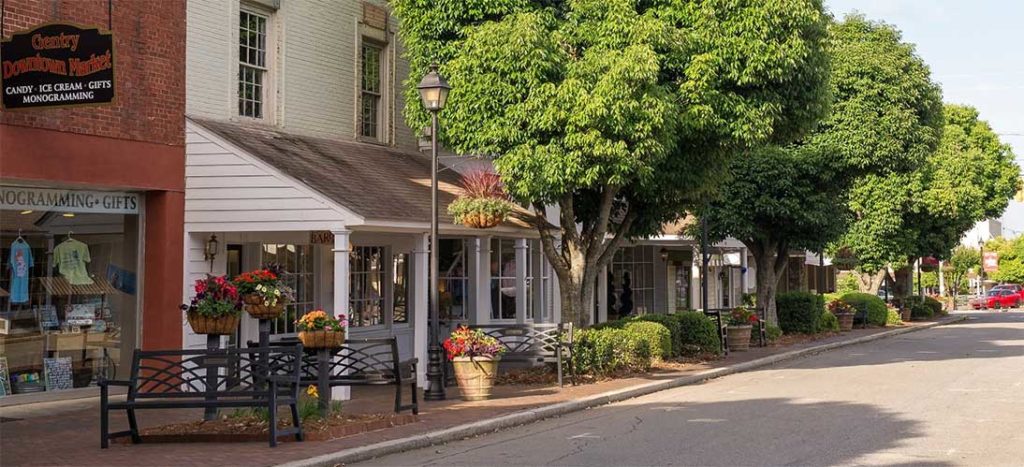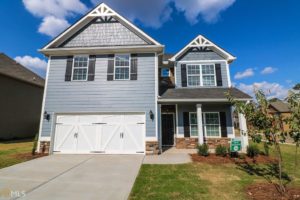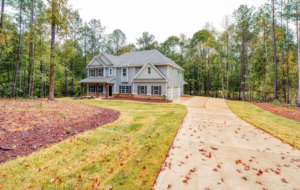
When it comes to house hunting, one of the vital features of a home is the community surrounding it. The home is what brought you there; the community will make you want to stay or drive you away. Searching and thinking about the kind of community that is right for you can be overwhelming, so start with making a list of what your ideal community looks like.
Consider these categories and ask yourself the following questions:
Lifestyle:
Environment:
Location:
Are you single or married? Do you have children or want them soon? Are you a student, employee, or retired? Do you enjoy a quiet night at home or hosting a party with all of your friends? Will you be traveling for long periods of time?
Do you want to live in the center of all the action, a convenient distance away, or nowhere near it? Are you looking for family friendly community or a vibrant night-life? What is the crime rate in the area? How do the schools rank?
How far do you want to be from the nearest shopping and entertainment centers? How long of a commute would you like? Do you drive or take public transportation? Does your community have residential amenities, i.e. a pool, tennis court, clubhouse, public transportation, etc?
Your community needs to accommodate your whole lifestyle– from your stage of life, to the community environment, and community location if you are going to love and enjoy your home for the next several years.
While there are a great variety of community styles and communities, the three we’ll look at are urban core, suburbs and subdivisions, and rural.
 The urban core community, also known as downtown, is an exciting, entertaining area very close to shopping centers, community events, and restaurants. People living in this area are commonly singles of all ages, business/ low- middle class families and residents. The housing options include a majority of condos and apartments and luxury lofts located above businesses. If you like to sleep and live to the sound of “busyness”, be surrounded by people, walk everywhere, and experience a vibrant nightlife, then the downtown area is the place for you. Unfortunately, the parking space is very limited, crime rates are higher, and the noise may be a deterrent for some.
The urban core community, also known as downtown, is an exciting, entertaining area very close to shopping centers, community events, and restaurants. People living in this area are commonly singles of all ages, business/ low- middle class families and residents. The housing options include a majority of condos and apartments and luxury lofts located above businesses. If you like to sleep and live to the sound of “busyness”, be surrounded by people, walk everywhere, and experience a vibrant nightlife, then the downtown area is the place for you. Unfortunately, the parking space is very limited, crime rates are higher, and the noise may be a deterrent for some.
 The next community we’ll look at is the suburbs and subdivisions. The suburbs is primarily a place for newlyweds, families, and anyone else who wants to have their own quiet space but also conveniently enjoy the various activities the city has to offer. The suburbs are tucked away from downtown, but located centrally to the entertainment and shopping districts. These areas have great schools, lower crime rates, and are less crowded than downtown communities. Subdivisions are very similar to the suburbs. They are also ideal for families and can be located between the urban core and suburbs. Many are newly built as homebuyers look to design their dream home. Subdivisions tend to offer a large variety of amenities that residents can use on site. Amenities may include parks, a clubhouse, bike/pedestrian trails, community pools, and public transportation.
The next community we’ll look at is the suburbs and subdivisions. The suburbs is primarily a place for newlyweds, families, and anyone else who wants to have their own quiet space but also conveniently enjoy the various activities the city has to offer. The suburbs are tucked away from downtown, but located centrally to the entertainment and shopping districts. These areas have great schools, lower crime rates, and are less crowded than downtown communities. Subdivisions are very similar to the suburbs. They are also ideal for families and can be located between the urban core and suburbs. Many are newly built as homebuyers look to design their dream home. Subdivisions tend to offer a large variety of amenities that residents can use on site. Amenities may include parks, a clubhouse, bike/pedestrian trails, community pools, and public transportation.
 Finally, rural areas, the countryside, come with a great sense of community. Far removed from town, Pewter Research declares that 40 percent of rural residents know their neighbors, and only about half as many urban core and suburban residents can say the same. Rural areas have a lot of land and natural scenery to enjoy. However, you will be a great distance from commercial stores and the entertainment culture, but if you desire to live simply and organically or you don’t mind the commute– this community dispersed throughout natural hills and valleys may be the perfect fit for you.
Finally, rural areas, the countryside, come with a great sense of community. Far removed from town, Pewter Research declares that 40 percent of rural residents know their neighbors, and only about half as many urban core and suburban residents can say the same. Rural areas have a lot of land and natural scenery to enjoy. However, you will be a great distance from commercial stores and the entertainment culture, but if you desire to live simply and organically or you don’t mind the commute– this community dispersed throughout natural hills and valleys may be the perfect fit for you.
There’s a saying, “If houses are like spouses, communities are like the extended family.” However, in-laws are typically only around on occasion, making it easier to love them and make it through the holidays, but your community will always be there. Make sure you give just as much consideration to your future community as you do the perfect house.
